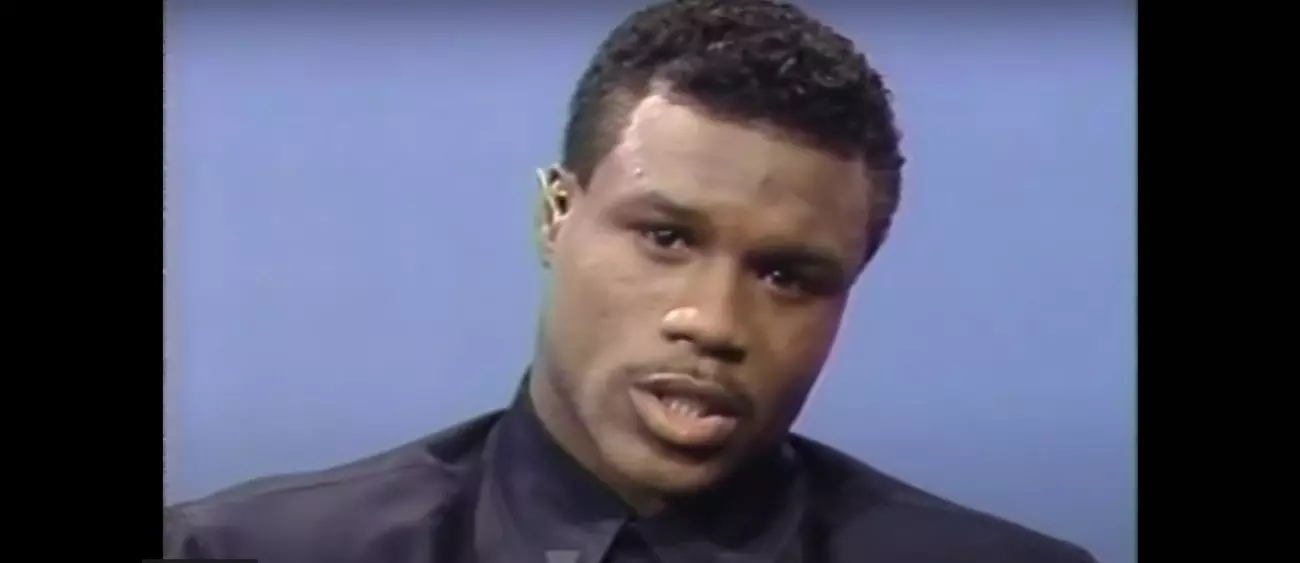Meldrick Taylor remains one of boxing’s most compelling figures, embodying both immense talent and profound tragedy. His nearly-captured glory against Julio Cesar Chavez on March 17, 1990, serves as a powerful reminder of how fleeting success can be in the ring. As Taylor neared what many assumed would be a monumental victory, fate intervened in a shocking finish that left him and boxing fans around the world reeling. The phrase “Two seconds from greatness” effectively encapsulates his career—an ever-present ghost that perhaps continues to haunt him. Though he was tantalizingly close to beating a warrior regarded as one of Mexico’s greatest fighters, history ultimately favored Chavez, and Taylor would be left grappling with the repercussions of a career marked by brilliance that was overshadowed by loss.
The Rise of a Philadelphia Fighter
Born in the boxing-rich environment of Philadelphia, Taylor, affectionately nicknamed “T.N.T.,” was not just another fighter; he was a phenomenon in the making. With an impressive amateur record of 99-4 and an Olympic gold medal to his name in 1984, Taylor demonstrated raw talent that promised greatness in the professional arena. Each fight he took forged his identity—not only as a boxer but as a reflection of the fighting spirit that Philadelphia was known for, standing tall alongside legends like Joe Frazier. Yet, the traits that made him a formidable competitor also compelled him to engage in brawls, eschewing a more tactical approach in favor of barnburners. This inclination to brawl, a signature aspect of his style, ultimately proved detrimental to his long-term health and career prospects.
Tactical Missteps in the Ring
Though Taylor had luxuries like extraordinary speed and footwork, his fighting style often placed him in precarious situations. In his heated encounters with seasoned opponents such as Buddy McGirt and Courtney Hooper, Taylor demonstrated a dazzling ability to engage and overwhelm. However, against Chavez—an adversary worthy of tactical discipline—Taylor’s decision to fight in the pocket became his Achilles’ heel. Instead of relying on his speed and skill to outmaneuver Chavez, he frequently found himself trading punches with a fighter who thrived in blood-and-guts warfare. Perhaps if he had chosen to box from a distance, or emulate the defensive acumen of his 1984 teammate Pernell Whitaker, the outcome might have been remarkably different. Instead, he fought chin to chin, suffering severe damage in a duel that would forever alter his career.
When the fight concluded, the world was left in stunned silence. Richard Steele’s controversial stoppage, which pulled a bewildered Taylor from the fight, was met with furious backlash. Having led on the scorecards, the TKO not only stripped Taylor of glory but also initiated a downward spiral in both his boxing career and personal life. The days following that fateful match saw him endure severe physical repercussions, including a broken orbital bone and kidney injuries. Meanwhile, psychologically, it removed more than just a championship belt; it dismantled a fighter who had poured every ounce of himself into proving his worth inside the ropes.
Though subsequent victories against fighters with respectable skills—like Aaron Davis—followed, they weren’t enough to mask the deterioration in Taylor’s physical and cognitive functions. Increasingly vocal detriments, slurred speech, and diminished reflexes made it apparent that the effects of his brawling style were taking their toll. He moved on to post-career fights that felt like mere shadows of the once-great athlete who captivated audiences. Ultimately, he hung up his gloves in 2002, ending a career that bore a record of 38 wins and 8 losses. Yet, it’s that singular loss that carved the most profound impact on his life.
As Meldrick Taylor celebrates his 58th birthday, the boxing world remembers him not just for the fleeting moments of glory but for the myriad complexities of a life significantly shaped by the sport. His talent and speed were undeniable, yet they accompanied a costly emotional and physical toll. One can’t help but wonder how different his narrative may have unfurled had he opted for a style more reliant on strategy rather than ferocity. Nonetheless, Taylor’s influence remains evident—a blend of unparalleled speed, resilience, and talent overshadowed by the indelible scars of defeat.
Today, as he stands distanced from the limelight that once embraced him, the hope is that Taylor finds peace and satisfaction, able to contemplate his remarkable yet turbulent journey in the ring with a sense of pride, despite the ghosts that linger. His story serves as a timeless testament to the dualities of ambition and consequence in the unforgiving world of boxing.

